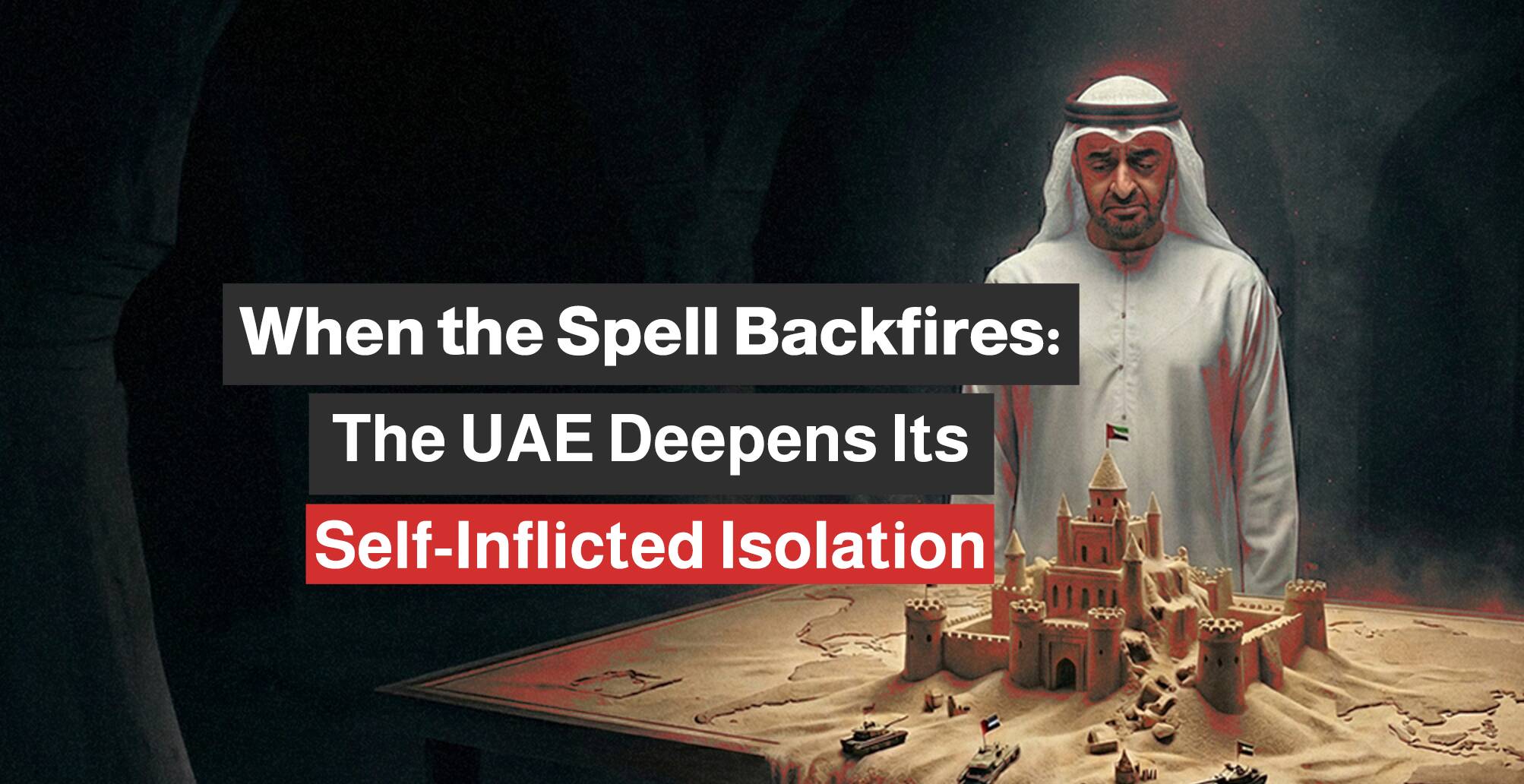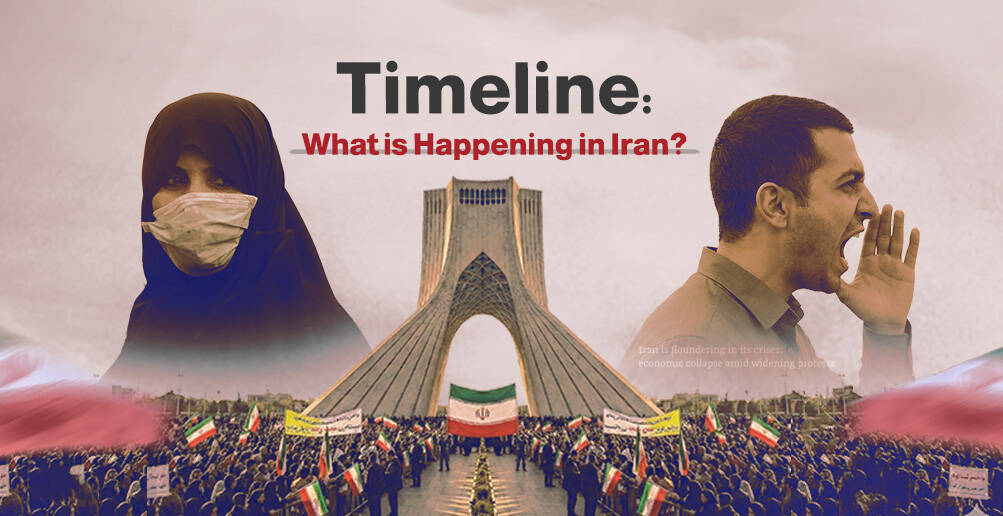How the Day-After Plans in Gaza Put Israeli Government in a Dilemma

“Netanyahu’s critics accuse him of seeking to prolong the war to avoid new elections.”
Although the Israeli aggression is approaching its eighth month, the future of post-war Gaza is still unclear, while Israeli Prime Minister Benjamin Netanyahu faces increasing criticism for not formulating a day-after plan for the war.
Israeli media revealed that there was great tension within Israel’s war cabinet, raising questions about the future of the war cabinet and Netanyahu’s coalition.
The Israeli Kan channel reported that relations between cabinet members have deteriorated significantly in the recent period, especially against the backdrop of not making decisions on strategic issues.
The sources indicated that the disputes also came as a result of the lack of progress in negotiations regarding the return of Israeli detainees held by Hamas.
In this context, the Financial Times quoted a former Israeli official who stated, "There is no idea how the war on Gaza will end, and no vision of what victory will actually look like.”
The Only Option
Israeli army minister Yoav Gallant publicly asked Netanyahu to announce a clear strategy for the “day-after” in Gaza, revealing deep divisions in the cabinet over the strategic goals of the war.
He also called on the government to make difficult decisions about who will rule the Gaza Strip after the war, considering that the gains of the war are eroding, and Israel's long-term security is at stake.
Gallant urged Netanyahu to make decisions that would allow finding authoritarian alternatives to Hamas in Gaza, noting that he opposes Israeli military or civilian rule of the Gaza Strip.
A senior American official said, in statements reported by Haaretz newspaper, “The United States shares Gallant’s concern that there are no Israeli plans to control and govern the areas that the Israeli army is clearing.”
US Deputy Secretary of State Kurt Campbell said a political solution was required in Gaza, likening the situation to that of a recurring insurgency that the United States faced in Afghanistan and Iraq after its invasions there.
During a security consultation session held last weekend, Chief of Staff Herzi Halevi also attacked Netanyahu for not presenting a strategy for the day after in Gaza.
The Israeli newspaper Yedioth Ahronoth published a document from the Israeli Ministry of Security indicating that the option of imposing military rule after the war on Gaza, which is one of the Israeli, would cost about $5.4 billion a year.
The document explained that this option would require placing five Israeli army groups in Gaza, four offensive and one defensive, stressing that Israel would not bear such a burden.
In turn, Netanyahu hinted that Gallant, and the security services are making excuses instead of eliminating Hamas, considering that he is not ready to remove Hamas from Gaza and bring in Fatah.
He also refused to stop the war in Gaza and said that a military victory over Hamas was the only option.
Netanyahu considered that any talk about the day after in Gaza would be nothing more than empty talk as long as Hamas remained there, accusing the movement of threatening and deterring anyone who tried to form civilian rule there.
Netanyahu's talk about continuing his war in Gaza until military victory over Hamas seemed to be a response to American and Israeli criticism accusing him of being unable to develop a post-war political plan, an issue that his critics see as harming and undermining the achievements of the Israeli army in the Strip.
According to Haaretz, senior officials in the Israeli Occupation Forces and the General Security Service had previously issued similar warnings to Netanyahu recently.
The New York Times had quoted some current and former senior army officers as saying that “due to the government's failure to present the day-after plan, Israeli forces are forced, in the eighth month of the war, to fight again in the lands to which Hamas militants have returned.”
According to Haaretz, the recent statements reflect the escalation of concern among the three ministers and leaders of the security services regarding the course of the war against Hamas, amid mounting calls for the government to set a political goal in addition to its military goals.

Political Disputes
Following his recent statements, Gallant was subjected to widespread attack from ministers and political figures affiliated with the right and far-right, amid calls for his dismissal.
Far-right Minister of National Security Itamar Ben-Gvir said, “Gallant failed on October 7 and continues to fail today. Such a minister must be replaced to achieve the goals of the war.”
On his part, Finance Minister Bezalel Smotrich said, “Gallant announced today his support for the establishment of a Palestinian terrorist state.”
Justice Minister Yariv Levin said that “the Israeli people will not agree to hand over Gaza to the control of the Palestinian terrorist authority and its security will only be guaranteed through victory.”
The Israeli Walla website revealed sharp disputes that broke out between Ben-Gvir and war cabinet observer Gadi Eisenkot during the last meeting.
In the latest internal dispute, former Israeli Occupation Forces Chief of Staff Benny Gantz called on the Cabinet to approve a 6-point plan for the war in Gaza by June 8.
Gantz, a member of Israel's war cabinet, threatened that his party would leave the government coalition by that date if Netanyahu did not meet expectations, considering that a minority had controlled the decision in Israel and was leading it toward the rocks.
He said in a press conference that “the plan must include Israel's vision for governing Gaza, and a fair recruitment system in the Israeli army, and called for the establishment of a European-Arab coalition to manage Gaza after the war without Hamas or Fatah.”
On his part, opposition leader Yair Lapid called on Gantz not to help Netanyahu remain in power, adding: “He must say that he will leave the government and call elections now.”
In turn, Palestinian journalist Iyad Hamad said in a statement to Al-Estiklal that “Gallant’s statements represent a public challenge to Netanyahu’s authority and a reflection of the demands of the United States, which seeks to exploit the war to grant a role to the internationally supported Palestinian Authority, which Netanyahu has repeatedly opposed.”
He also stressed that “successive divisions among Israel's political leaders threaten the disintegration of the war cabinet, threaten the continuity of the ruling coalition, and may require heading to new elections.”
Mr. Hamad pointed out, “The coming weeks will be a crossroads for Gantz, Eisenkot, and Gallant until they decide whether they want to continue with Netanyahu, and also for Netanyahu, who will have to choose between Gantz, Eisenkot, and Gallant, and between Ben-Gvir and Smotrich.”
He also concluded by saying: “The reasons that prompted Netanyahu to postpone the discussion about the day after in Gaza are related to his own political situation and the approach of his political movement that expresses the Palestinian cause.”

The Day After in Gaza
The debate within “Israel” refocused on Israeli perceptions of the day after in Gaza, which shows the extent of ideological and political differences between the Israeli parties.
The issue of the form of government in the Gaza Strip and the role of the Palestinian Authority and the Israeli government in it is one of the most important points of contention between the Israeli parties.
With renewed discussion, Gallant returned to the idea of local administrations as a framework for governance in Gaza as an alternative to the options of Hamas rule or the Israeli military government.
However, Gallant's plan to impose local rule collides with the difficulty of any Palestinian party accepting that it cooperates with the Israeli occupation and is an alternative to Hamas.
On the other hand, the vision of the Israeli far-right parties is based on restoring settlement in the Gaza Strip, from which Israel withdrew in 2005.
Last January, “Victory of Israel Conference: Settlement Brings Security” was held in Jerusalem, and hosted speeches by well-known extremists in Netanyahu’s cabinet, including Ben-Gvir and Smotrich.
At the conference, plans were presented to establish settlement outposts in different areas of the Gaza Strip.

The Israeli Broadcasting Authority said last week that the Israeli National Security Council discussed a new plan for the day after in Gaza and would soon present it to the government.
The plan includes Israeli control of Gaza for a period ranging from 6 months to one year by an Israeli civil administration and the coordinator of the Israeli government’s activities in the occupied Palestinian territories.
In addition, the Israeli plan claims that services will be provided to Gazans by private Arab companies, with control of the Palestinian enclave eventually transferred to local elements not hostile to Israel.
The disclosure of this plan coincided with the announcement of the resignation of Yoram Hamo, the official responsible for security policy and strategic planning in the Israeli National Security Council.
Sources
- Israel war cabinet member Gantz threatens Netanyahu with ultimatum about Gaza plan
- Defense Chief's Dire Warning to Netanyahu Exposes a Deep Rift Within Israeli Leadership
- The Day After storm: the ministers attacked the minister of army in the cabinet [Hebrew]
- The price of military rule under the Day After plan in Gaza [Hebrew]
- Out of Ideas, Netanyahu Sees Biden and Defense Minister Gallant as a Cabal Plotting Against Him
- Israeli Military Leaders See Danger in Lack of a Plan to Govern Gaza












